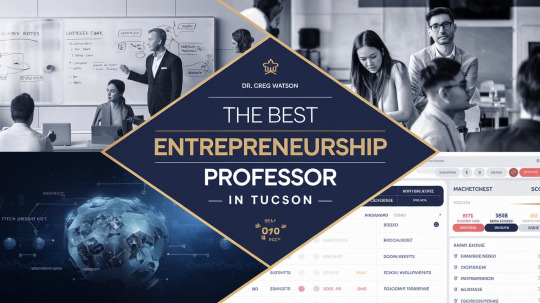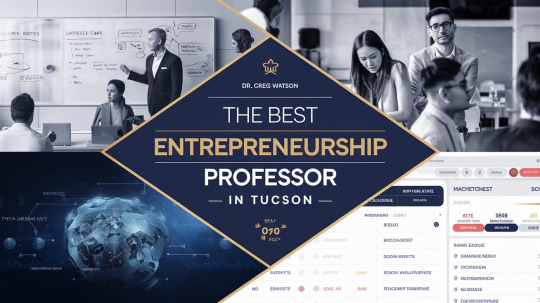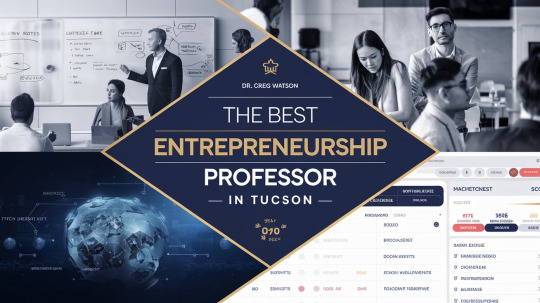Don't wanna be here? Send us removal request.
Text
Teaching the Art of Durability in the Face of Business Difficulties
Introduction
In today's fast-paced and typically turbulent organization landscape, resilience has actually ended up being a foundation of success. Entrepreneurs deal with myriad obstacles that can evaluate their willpower, flexibility, and capability to innovate. This short article checks out how educators can effectively teach durability-- an essential quality for budding entrepreneurs-- by integrating real-world learning experiences, cultivating a growth state of mind, and leveraging failure as an effective teacher. We'll look into approaches that transform theoretical ideas into practical skills while determining development in state of mind rather than simply academic performance.
youtube
Teaching the Art of Strength in the Face of Company Challenges
Resilience is not simply the capability to get better; it's about flourishing amidst difficulty. In mentor entrepreneurship, it's essential to instill this quality in students so they can navigate setbacks with nerve and creativity. So how do we go about doing this? The response lies in an educational method that integrates theory and practice with psychological intelligence.
What Sets Terrific Entrepreneurship Professors Apart: The Science and Soul Behind Teaching Mindset
Great entrepreneurship professors are not just subject professionals; they are mentors who understand the elaborate dance between knowledge and emotional durability. They make use of both scientific methods-- like mental theories on growth mindset-- and emotional techniques like storytelling to engage students deeply.

The Function of Emotional Intelligence in Teaching
Emotional intelligence (EI) plays an important function in cultivating strength amongst trainees. Professors who demonstrate high EI can create an understanding class environment where students feel safe to express their fears and failures. This openness motivates risk-taking which is essential for entrepreneurial success.
Creating a Safe Learning Environment
To cultivate a durable mindset, educators ought to focus on creating an inclusive class environment where failure is considered as an opportunity for development rather than a problem. Encouraging conversations around personal experiences with failure can demystify it and reduce worry amongst students.
How to Teach Grit, Flexibility, and Opportunity Recognition-- And In Fact Make It Stick
Teaching grit-- the passion and perseverance needed to attain long-lasting objectives-- is necessary for developing resilient entrepreneurs.
Instilling Grit Through Challenges
One effective technique involves providing students with tough tasks that need continual effort in time. For instance, setting up a semester-long company simulation can help them experience the ups and downs of running a company.
Adaptability: The Secret Ingredient
Teaching flexibility goes hand-in-hand with grit. Trainees should be Leading Business Professor in Tucson encouraged to pivot their techniques when faced with unexpected hurdles during tasks or simulations. This promotes a nimble mindset that is essential for real-world entrepreneurship.
Real-World Knowing, Real Outcomes: Class Strategies That Launch Ventures and Change Lives
Theory is fundamental, however without useful application, it fails. Rea
0 notes
Text
Planning for Success: How Coaches Assist Business Owners Develop Winning Strategies
Introduction
In today's busy service world, the concept of entrepreneurship has progressed into something far beyond just starting a business. It has to do with producing sustainable designs that not just succeed however prosper in competitive landscapes. However how do successful business owners attain advancement success while navigating difficulties? The response typically lies in a tactical collaboration with coaching experts. Strategizing for Success: How Coaches Assist Entrepreneurs Develop Winning Plans looks into the important role that coaches play in shaping entrepreneurial journeys.
Why High-Performing Business owners Count on Coaching to Accomplish Breakthrough Success
High-performing business owners are not just lucky; they understand how to take advantage of their resources efficiently. Among their most substantial resources is coaching. But why do they depend on it so heavily?
youtube
The Power of Perspective
Coaches bring an external point of view to the table. They can identify opportunities and difficulties that business owners may neglect due to their immersion in daily operations. This bird's-eye view allows for more educated decision-making.

Accountability and Commitment
A coach holds business owners responsible for their objectives, ensuring they remain dedicated and focused. This accountability can be a game-changer when barriers develop, assisting entrepreneurs push through difficulties rather than retreat.
Skill Development
Entrepreneurship needs a varied ability-- from management to financial management. Coaches offer targeted training and feedback, enabling business owners to refine these skills and adjust to shifting market demands.
Emotional Support
The entrepreneurial journey can be demanding and separating sometimes. Coaches offer emotional support, helping entrepreneurs preserve resilience during difficult times while providing motivation as they celebrate Marketing Course wins.
Networking Opportunities
Many coaches come equipped with a comprehensive network of contacts throughout numerous markets. Engaging with a coach opens doors to potential collaborations, financiers, or customers that might otherwise remain inaccessible.
Customized Strategies
Not all businesses are produced equivalent; therefore, one-size-fits-all strategies don't work. Coaches customize strategies based on specific strengths, weaknesses, market conditions, and particular business objectives.
The Training Benefit: How Specialist Assistance Accelerates Entrepreneurial Development and Execution
The landscape of entrepreneurship is intricate and ever-evolving. Here's how skilled coaching functions as a catalyst in speeding up growth.
Strategic Planning
A well-crafted plan is vital for any business's success. Coaches help in formulating actionable plans by analyzing market trends, consumer requirements, and competitive landscapes.
Example of Efficient Strategic Planning:
|Element|Importance|| ---------------------|---------------------------------------|| Vision Declaration|Defines the purpose and direction|| Market Analysis|Identifies chances and dangers|| Financial Projections|Guides budgeting and financing decisions|
Improved Decision-Making
With experienced assistance from coaches, entrepreneurs can make better-informed
0 notes
Text
Producing a Dynamic Environment for Real-World Knowing in Organization Education
In today's quickly progressing company landscape, the requirement for innovative academic approaches is more crucial than ever. Standard methods of teaching can no longer keep up with the demands these days's entrepreneurial world. As teachers and organizations strive to prepare trainees for real-world difficulties, Creating a Dynamic Environment for Real-World Knowing in Organization Education becomes vital. This post looks into various methods, techniques, and philosophies that can transform company education into a thriving center of creativity, adaptability, and practical application.
What Sets Terrific Entrepreneurship Professors Apart: The Science and Soul Behind Teaching Mindset
When we think about great educators, what comes to mind? Is it their vast understanding or their capability to motivate? Fantastic entrepreneurship teachers possess a special blend of clinical understanding and soulful connection with their students.
The Science of Teaching Mindset
Research shows that adopting a development mindset-- the belief that capabilities can be established-- can significantly impact trainees' learning results. Professors who highlight this state of mind motivate students to welcome difficulties, continue through difficulties, and view failures as opportunities for growth.
The Soul of Connection
But it's not practically the science; there's a psychological component that can not be ignored. Fantastic professors establish real connections with their students. They create an environment where trainees feel valued and understood, cultivating open communication and trust.
Combining Science and Soul
When the science of mentor meets the soul of connection, magic occurs in the classroom. Students become more engaged, inspired, and willing to take dangers in their knowing journey.

youtube
How to Teach Grit, Adaptability, and Chance Acknowledgment-- And In Fact Make It Stick
Teaching essential qualities like grit and versatility isn't almost lectures; it's about developing experiences that permit these qualities to flourish.
Grit: The Power of Perseverance
To instill grit in students: small business studies professor Tucson
Encourage Goal Setting: Assist students set attainable yet challenging goals. Celebrate Effort: Acknowledge effort rather than simply results. Provide Support: Exist during difficult times to guide them through obstacles. Fostering Adaptability
Adaptability can be supported through:
Real-Life Simulations: Use case research studies or role-playing circumstances that require flexible thinking. Feedback Loops: Motivate constructive feedback that permits students to pivot quickly. Opportunity Recognition
To assistance trainees develop opportunity recognition skills:
Implement conceptualizing sessions that focus on identifying issues worth solving. Encourage sightseeing tour or guest speakers from varied industries to expose them to different challenges.
By embedding these qualities into the curriculum actively, you develop an environment favorable to real-world learning.
Real-World Knowing
0 notes
Text
** The Lifelong Coach: Cultivating Relationships That Withstand Beyond Graduation **.
In the expert business professor Tucson bustling world of entrepreneurship, where development meets ambition, the role of coaches has never ever been more important. As trainees enter the arena equipped with concepts and dreams, they often discover themselves navigating a maze of obstacles. Go into the mentor-- the directing light that helps them not just to endure but to prosper. This article dives deep into The Lifelong Coach: Cultivating Relationships That Endure Beyond Graduation, checking out the dynamics of mentorship in entrepreneurial education.
The Teacher as Coach: Why Great Entrepreneurship Educators Exceed the Syllabus
Mentorship is not simply an add-on; it's an important part of a student's journey. Terrific teachers comprehend this and go beyond traditional mentor methods. They develop an environment where finding out goes beyond textbooks.
Creating Links That Matter
Professors who function as coaches foster authentic connections with their students. They recognize that each trainee comes with distinct experiences and aspirations, which requires a customized method to guidance.
Understanding Specific Goals: A fantastic mentor takes time to understand what drives each student. This understanding enables them to provide personalized advice.
Building Trust: Trust forms the bedrock of reliable mentorship. When trainees feel valued, they are most likely to look for assistance and share their challenges.
Encouraging Critical Thinking
A good mentor motivates trainees to think seriously about their concepts and decisions.
Challenging Assumptions: By posing hard concerns, mentors help trainees refine their thinking and think about alternative perspectives.

Fostering Resilience: Coaches teach trainees that failure is not completion however a stepping stone toward success.
From Coach to Connector: Guiding Students Through Genuine Start-up Challenges and Networks
Transitioning from theory to practice can be intimidating for aiming entrepreneurs. Coaches play an essential role in bridging this space by functioning as adapters within their networks.
Accessing Real-World Challenges
By involving students in genuine start-up circumstances, coaches offer practical experience that class settings frequently lack.
Hands-On Projects: Teaming up on actual company projects exposes trainees to the truths of entrepreneurship.
Live Case Studies: Examining existing start-ups offers students insights into market patterns and functional challenges.
Networking Opportunities
Mentors utilize their networks to present trainees to possible investors, partners, or clients.
Inviting Industry Experts: Setting up guest lectures or workshops can boost discovering experiences.
Facilitating Connections: Personal intros can open doors that would otherwise stay closed for students.
High-Impact Mentorship Designs: Office Hours, Incubator Gain Access To, and Real-Time Feedback Loops
Effective mentorship designs incorporate various techniques customized
0 notes
Text
** Bypassing the Curriculum: Ingenious Mentoring Methods for Entrepreneurs **.
Introduction
In today's busy world, entrepreneurship isn't just a profession course; it's a way of life. The evolution of company models and the development of innovation have produced an environment where standard education typically disappoints preparing trainees for real-world obstacles. Go into ingenious Tob Business School Professor Tucson mentoring methods developed to empower entrepreneurs by bypassing the conventional curriculum. This article explores these progressive methods that change educators into impactful mentors, assisting ambitious business owners through their journeys.
Bypassing the Curriculum: Ingenious Mentoring Techniques for Entrepreneurs
When we speak about education, especially in entrepreneurship, it prevails to think of books, lectures, and rigid curricula. However, innovation lies in improving these conventional structures into dynamic mentoring experiences that focus on practical applications instead of theoretical understanding alone. This technique not just improves learning but also fosters an entrepreneurial frame of mind geared up to take on real-world challenges.
youtube
The Professor as Coach: Why Great Entrepreneurship Educators Go Beyond the Syllabus
What identifies a terrific teacher from a mediocre one? It's not simply their scholastic credentials or years of experience, but rather their capability to get in touch with trainees on an individual level and guide them through complex entrepreneurial landscapes.
1. Building Relationships Great professors invest time in comprehending their students' goals and fears. They leverage mentorship as a tool to build lasting professional relationships. 2. Fostering Practical Skills Instead of focusing solely on theoretical knowledge, they emphasize skills like negotiation, leadership, and tactical thinking. Real-life case research studies are made use of to bring lessons alive. 3. Encouraging Risk-Taking Successful business owners are risk-takers; hence, professors encourage trainees to step outside their comfort zones. They develop safe environments for experimentation where failure is seen as a stepping stone. From Coach to Connector: Directing Trainees Through Genuine Start-up Obstacles and Networks
The function of a coach goes beyond simple classroom direction; it includes nurturing connections that can cause productive opportunities.

1. Navigating Startup Ecosystems Mentors help students comprehend the complexities of start-up ecosystems-- essential gamers, moneying sources, and market trends. They present trainees to market networks that can help facilitate future collaborations. 2. Facilitating Real-World Challenges Engaging trainees in live projects enables them to deal with real business problems together with seasoned entrepreneurs. This hands-on technique makes it possible for quicker knowing curves while boosting confidence levels. 3. Creating Support Systems By connecting students with alumni and market professionals, mentors create robust assistance networks. These connections end up being essential resources as trainees launch the
0 notes
Text
From Idea to Execution: Training That Changes Start-up Success
Introduction
Starting a business is like embarking on an exhilarating roller coaster ride. There are thrilling highs, gut-wrenching lows, and sometimes unexpected twists and turns that can leave you dizzy. But how do you navigate this unpredictable journey? It all boils down to one crucial element: training. In today’s fast-paced world, the right training can truly change everything for a startup. Whether it’s through online courses, intense boot camps, or insightful mentorship programs, acquiring the right skills is paramount. This article will delve deep into how training transforms startup success and highlight the essential skills every founder needs.
How the Right Training Can Change Everything
Training isn’t just about learning; it’s about transformation. For startup founders, the right kind of training can turn a fledgling idea into a thriving business.
Why Training Matters in Entrepreneurship
When you're running a startup, every decision counts. Training equips entrepreneurs with the necessary tools to make informed decisions. Without proper guidance, it's easy to fall into common pitfalls—like overspending on marketing or mismanaging finances.
The Science Behind Skill Development
Research shows that continuous learning enhances cognitive function and decision-making capabilities. A well-structured training program helps entrepreneurs develop critical thinking skills, which are vital in navigating complexities.
youtube
Real-Life Examples of Transformation Through Training
Consider Sarah, who launched her e-commerce store without any prior business experience. After enrolling in an intensive online course focused on digital marketing strategies, she skyrocketed her sales by 200% within six months! Stories like hers illustrate how impactful the right training can be.
Skill That Separates Successful Entrepreneurs
What makes some entrepreneurs stand out while others struggle? The answer often lies in their skill set.
Identifying Key Skills for Startup Success Leadership: Inspiring a team is crucial. Financial Literacy: Understanding numbers can save your business. Adaptability: The ability to pivot when things go awry is invaluable. Networking Skills: Building relationships can open doors to opportunities. How to Cultivate These Skills
While some people may have natural inclinations towards certain skills, many can be learned through dedicated training programs.

Transformative Workshops and Boot Camps
Boot camps offer immersive experiences where individuals learn these essential skills in condensed Ethics Course periods of time—often leading to rapid growth and development.
Skills for Every Founder
Every entrepreneur should possess a unique toolkit of skills tailored to their industry and personal strengths.
Essential Skills Every Founder Should Develop Marketing Strategies: In today’s digital age, knowing how to market your product online is non-negotiable. Technical Proficiency: Even if you’re not a tech whiz, understanding basic digital tool
0 notes
Text
Browsing the Future of Entrepreneurship Training and Development
Introduction
Entrepreneurship is more than simply a buzzword; it's a way of life, an attitude, and a pathway to development. As we dive into the ever-evolving landscape of entrepreneurship, it becomes clear that the best training can change whatever. From bootstrapping start-ups to scaling up recognized businesses, aiming business owners need guidance tailored to their special circumstances. In this short article, we'll explore the various facets of entrepreneurship training and development-- what abilities different successful business owners from the rest, how training changes start-up success, and which methods-- be it online courses, bootcamp, or mentorship-- are most reliable for budding service leaders.
How the Right Training Can Modification Everything
When you think about it, what's more crucial for an ambitious business owner than having the right tools in their toolkit? The adage "knowledge is power" rings particularly true in the world of entrepreneurship. But how precisely can training change everything?
Understanding Your Business Landscape
Training gears up entrepreneurs with an extensive understanding of their industry landscape. This means knowing who your competitors are, recognizing spaces in the market, and understanding consumer habits.
youtube
Market Research Techniques Surveys: Collecting feedback straight from prospective customers. Focus Groups: Engaging small groups for deeper insights. Competitor Analysis: Evaluating strengths and weak points of similar businesses. Skill Sets that Make a Difference
Business acumen isn't just about having a concept; it's about execution. Training assists polish vital abilities like monetary literacy, marketing methods, and negotiation tactics.
Essential Abilities for Entrepreneurs Financial Management Networking Time Management Leadership Problem-solving Boosting Self-confidence and Reducing Risks
One key advantage of proper Best Business Educator in Tucson training is increased confidence. When you understand what you're doing, you're less likely to make costly mistakes.

Skill That Separates Effective Entrepreneurs
You may ask yourself: What's that one skill that genuinely sets effective entrepreneurs apart? While lots of qualities add to success, flexibility stands out as a game-changer.
The Value of Adaptability
In today's busy service environment, being flexible can make all the difference.
Case Study: Companies That Adapted Well Netflix: Transitioned from DVD rentals to streaming. Amazon: Expanded from books to almost whatever under the sun. Developing Versatility Through Training
Training programs often stress versatility in thinking-- mentor entrepreneurs how to pivot when confronted with challenges.
Techniques to Boost Adaptability Scenario Planning Continuous Learning Feedback Loops Skills for each Founder
Regardless of your specific niche or target market, there are speci
0 notes
Text
Feedback Loops: Utilizing Reflection to Foster Entrepreneurial Mindsets
Introduction
In today's hectic world, the capability to adapt, reflect, and grow is crucial for business owners. The entrepreneurial landscape is ever-changing, and fostering a mindset that welcomes these changes can substantially affect best entrepreneurship training Tucson success. One powerful tool that can help cultivate this mindset is the feedback loop. This post will explore how feedback loops-- incorporating reflection into knowing-- can foster entrepreneurial state of minds among students and aiming company owners.
Feedback Loops: Using Reflection to Foster Entrepreneurial Mindsets
Feedback loops are dynamic processes where output from a system serves as input for future actions. In essence, they produce a cycle of continuous enhancement-- a vital principle in entrepreneurship. However how do these loops operate in an instructional context?
When students take part in tasks or ventures, they typically deal with obstacles and problems. The concept is not simply to overcome these difficulties but to review them. By analyzing what went wrong or right, trainees can adapt their techniques for future ventures. This reflection cultivates versatility, resilience, and overall growth-- a triad vital for any successful entrepreneur.
The Importance of Reflection in Entrepreneurship Education
Reflection functions as a bridge between theory and practice. It enables trainees to internalize lessons learned from experiences, both excellent and bad. This process helps them recognize patterns in their habits and decision-making processes.
Why is Reflection Critical? Develops self-awareness Encourages important thinking Enhances analytical skills
When students actively assess their entrepreneurial journeys, they construct a robust structure for future challenges.

What Sets Fantastic Entrepreneurship Professors Apart: The Science and Soul Behind Teaching Mindset
Every teacher has their unique mentor design; however, exceptional entrepreneurship professors integrate clinical techniques with a personal touch. They understand the psychological aspects of learning and leverage them to impart an entrepreneurial mindset.
Science-Based Mentor Approaches
Utilizing data-driven approaches makes sure that teaching strategies are effective.
Incorporating learning theories such as constructivism permits trainees to build knowledge based on individual experiences.
The Heart of Teaching
Empathy plays a vital function in getting in touch with students.
Great teachers share their real-world experiences to influence and inspire learners.
By balancing scientific techniques with sincere interactions, professors can produce an environment favorable to establishing durable entrepreneurs.
youtube
How to Teach Grit, Adaptability, and Chance Acknowledgment-- And Actually Make It Stick?
Teaching grit, flexibility, and opportunity acknowledgment includes more than just lectures; it requires hands-on engagement.
Grit: The Power of Perseverance
Grit can be described as enthusiasm and determination toward long-term objectives. To teach this quality:
Encourage setting goal: Help students set possible yet chal
0 notes
Text
Constructing a Culture of Resilience: Lessons from Effective Entrepreneurship Professors
Introduction
In today's ever-evolving business landscape, the ability to adapt, pivot, and persevere is more important than ever. This is especially real for aspiring entrepreneurs who deal with many difficulties on their journey to success. However how do we cultivate these necessary characteristics in students? The response depends on constructing a culture of resilience, assisted by the insights and experiences of successful entrepreneurship teachers. These educators don't just teach service concepts; they impart a state of mind that prepares trainees for real-world challenges. In this detailed post, we'll explore how these teachers develop resilience amongst their students and what sets them apart.
Building a Culture of Durability: Lessons from Successful Entrepreneurship Professors
Creating an environment where resilience thrives requires intentional effort and innovative teaching strategies. Successful entrepreneurship professors often share several Expert in Business Strategy Tucson crucial principles that add to this culture:
The Importance of State of mind in Entrepreneurship
A growth frame of mind is essential for entrepreneurs. It encourages people to view obstacles as opportunities for discovering rather than overwhelming barriers. Professors play an essential role in cultivating this state of mind through numerous classroom techniques and real-world applications.
What Sets Great Entrepreneurship Professors Apart: The Science and Soul Behind Teaching Mindset
Great entrepreneurship professors comprehend the psychology behind mentor and learning. They utilize research study in cognitive science to inform their techniques while likewise bringing their individual experiences to the table.
Empathy: They get in touch with trainees on an emotional level, producing a safe space for exploration. Adaptability: They change their teaching styles based upon trainee feedback, ensuring everybody can engage effectively. Real-Life Application: They stress practical applications of theoretical understanding, making lessons more relatable. How to Teach Grit, Versatility, and Opportunity Acknowledgment-- And In Fact Make It Stick
Teaching grit includes helping students accept failure as part of the knowing process. Here are some useful techniques:
youtube

Encourage Risk-Taking: Produce tasks that need trainees to get out of their comfort zones. Reflective Practices: Carry out routine reflection sessions where trainees assess their successes and failures. Mentorship Programs: Set trainees with local business owners who can share their journeys, highlighting adaptability in the face of setbacks. Classroom Strategies That Introduce Ventures and Modification Lives
Professors utilize numerous techniques that resonate with their trainees:
Project-Based Knowing: Students deal with genuine projects with local companies or startups. Experiential Learning Opportunities: Workshops, internships, and live case studies allow trainees to use theoretical concepts. Peer Cooperation: Group projects promote team effort abilities while exposing trainees to va
0 notes
Text
How the Right Training Can Modification Whatever for Aspiring Founders
Introduction
In today's fast-paced world, where ideas and innovations are the currency of success, aspiring founders face a myriad of challenges. Whether you're launching entrepreneurship research a tech startup or a local bakery, the journey from concept to execution is fraught with obstacles. But here's the good news: how the right training can change everything for you!
With the right set of skills and knowledge, you can transform your entrepreneurial dreams into reality. This article dives deep into the essential skills every founder needs, explores various training options like online courses and bootcamps, and discusses how effective training can radically alter your startup’s trajectory.
How the Right Training Can Change Everything for Aspiring Founders
The first step towards understanding how training impacts aspiring founders is recognizing what it encompasses. Training isn't merely about attending classes or reading MGT200 Small Business Management and Entrepreneurship books; it's about acquiring practical skills that help navigate the tumultuous waters of entrepreneurship.
1. Understanding Fundamental Skills for Every Founder
What are these elusive skills that separate successful entrepreneurs from those who struggle? Here’s a breakdown:

Business Planning: Crafting a solid business plan lays down the foundation for your venture. Financial Literacy: Understanding budgets, investments, and cash flow can make or break your startup. Marketing Skills: In today’s digital age, knowing how to market your product effectively is crucial. Leadership & Team Management: A great idea needs a great team to bring it to life. 2. The Skill That Separates Successful Entrepreneurs
You might wonder—what's that one skill that truly stands out among successful entrepreneurs? It's resilience! The ability to bounce back from failures is paramount in entrepreneurship. With proper training focused on personal development and emotional intelligence, founders can develop this critical trait.
3. The Role of Online Courses in Entrepreneurial Training
Online courses have revolutionized learning. They offer flexibility and access to experts worldwide. From platforms like Coursera to Udemy, let’s take a look at some popular online courses tailored for aspiring founders:
| Course Name | Offered By | Key Benefits | |-----------------------------|-------------------|----------------------------------------------| | Startup School | Y Combinator | Insight from successful entrepreneurs | | Entrepreneurship Essentials | edX | Covers basics of starting and managing a business | | Business Strategy | Wharton | Learn strategic thinking methods |
4. Bootcamps vs. Online Courses: What's Better?
When it comes to choosing between bootcamps or online courses, it often boils down to your learning style:
Bootcamps provide intensive training over a short period. They're hands-on and immersive. Online Courses offer flexibility but may lack in-depth interaction.
So which one should you choose? If you thrive in structured environments with peer interaction, bootcamps could be your best bet!
youtube
5. Mentorship: Learning from Experience
0 notes
Text
** The Long-Term Effect of Mentorship on Career Velocity and Growth **.
Mentorship is an olden practice that shapes the future while improving present abilities. Whether you're a fresh graduate stepping into the business world or an experienced business owner attempting to scale your startup, mentorship can be the secret component to propel you forward. This article checks out The Long-Term Effect of Mentorship on Profession Velocity and Growth, diving into various elements of mentorship, small business faculty in Tucson its structure, and how it promotes acceleration in careers and organizations alike.
The Long-Term Impact of Mentorship on Career Acceleration and Growth
Mentorship isn't practically imparting knowledge; it has to do with developing relationships that support development with time. The long-lasting impact of mentorship manifests through boosted abilities, increased self-confidence, expanded networks, and eventually, career velocity. This relationship frequently goes beyond standard instructional limits, creating a vibrant community where both mentors and mentees thrive.
youtube
The Teacher as Coach: Why Great Entrepreneurship Educators Exceed the Syllabus
In scholastic institutions, professors are not simply instructors; they are essential coaches who shape aiming entrepreneurs' futures. Terrific entrepreneurship teachers understand that their function extends beyond teaching theoretical principles. They engage trainees by sharing real-world experiences, cultivating critical thinking, and motivating creative problem-solving.
Engagement Beyond Classroom: Professors should provide opportunities for trainees to apply class ideas in practical settings. Real-World Exposure: By bringing market connections into the classroom setting, professors enable students to engage with prospective employers or investors. Holistic Development: Promoting soft skills like interaction and team effort is essential for producing well-rounded individuals ready for entrepreneurial challenges. From Coach to Port: Directing Trainees Through Genuine Start-up Difficulties and Networks
Transitioning from coach to port is basic for efficient mentorship. A mentor's function includes not only guiding students however likewise linking them with pertinent networks that can facilitate their entrepreneurial journey.
Why Networking Matters
Networking opens doors to moneying opportunities, partnerships, and important insights from market veterans.
Access to Resources: Supplying access to resources such as incubators or co-working spaces. Connecting with Alumni: Leveraging alumni networks can assist existing students find mentors who have actually walked comparable paths. Building Collective Projects: Motivating collaborative projects amongst students improves finding out experiences. High-Impact Mentorship Models: Office Hours, Incubator Access, and Real-Time Feedback Loops
Effective mentorship comes in varying kinds but high-impact designs yield considerable results.
Office Hours
Regular workplace hours provide devoted time for mentees to seek advice on specific issues or challenges they face.

Incubator Access
Mentorship programs using incubation
0 notes
Text
** Crafting Tailored Experiences for Different Entrepreneurial Archetypes in Education **.
In the vibrant landscape of education, particularly within entrepreneurship, one size absolutely does not fit all. Educators are presented with a distinct obstacle: how to tailor their teaching strategies to fit various entrepreneurial archetypes. These archetypes represent distinct personalities, inspirations, and approaches to discovering and organization. Comprehending this diversity is important to provide impactful mentorship that genuinely resonates with students.
Crafting Customized Experiences for Various Entrepreneurial Archetypes in Education
The essence of Crafting Customized Experiences for Different Entrepreneurial Archetypes in Education depend on acknowledging that each trainee brings their own set of abilities, concepts, and goals into the classroom. As teachers, it's important to engage these differing point of views to create an inclusive environment where everybody feels valued.
The Teacher as Coach: Why Great Entrepreneurship Educators Surpass the Syllabus
Being a teacher isn't practically delivering lectures or grading projects; Tucson startup mentorship programs it's about promoting an environment where trainees can grow as entrepreneurs. Great teachers understand that their function extends far beyond the syllabus. They function as coaches who offer guidance and assistance customized to private needs.
youtube

Connecting on an Individual Level
Building relationship with students is important. By comprehending their backgrounds, interests, and career aspirations, professors can provide individualized advice that speaks directly to their entrepreneurial goals. This connection typically results in much deeper engagement and investment in learning.
Real-World Insights
Professors who share real-world experiences can bridge the gap between theory and practice. When students find out about difficulties dealt with by successful entrepreneurs or learn from failures, they acquire indispensable insights that can't be discovered in textbooks.
Encouraging Vital Thinking
A terrific mentor encourages trainees to think seriously about their ideas and approaches. They ask probing questions that stimulate discussion and help trainees improve their ideas-- pressing them toward ingenious solutions.
From Coach to Adapter: Guiding Students Through Genuine Startup Difficulties and Networks
Entrepreneurship education should not exist within a vacuum; it should link trainees with practical difficulties and networks that mirror the entrepreneurial ecosystem.
Experiential Learning Opportunities
By offering experiential learning opportunities like hackathons or pitch competitors, teachers can assist students apply what they've learned in real-world scenarios. This hands-on approach fosters durability and adaptability-- key characteristics for any entrepreneur.
Building Networks
Connections matter! A considerable part of entrepreneurship is networking. Educators can help with introductions to market professionals or alumni who want to share insights and even work together on projects with current students.
Creating Collective Environments
Encouraging cooperation among trainees not just boosts imagination but also exposes them to varied perspectives. Group projects can replic
0 notes
Text
The Function of Partnership in Fostering Entrepreneurial Thinking Among Students
Introduction
In a quickly altering world, the need for ingenious thinkers and problem solvers has never ever been more vital. Entrepreneurship education has become a crucial part of academic curricula, shaping the minds of young individuals who will lead tomorrow's companies. But how do we cultivate this entrepreneurial spirit? The answer depends on The Function of Cooperation in Fostering Entrepreneurial Believing Amongst Students This post dives deep into the significance of cooperation, effective teaching approaches, and real-world applications that can transform trainees into effective entrepreneurs.
The Role of Collaboration in Fostering Entrepreneurial Thinking Among Students
Collaboration plays an important role in developing entrepreneurial thinking among trainees. When students engage with one another, they share concepts, obstacle assumptions, and foster imagination. In a collective environment, learners can pool their diverse point of views and abilities to create innovative solutions to real-world problems.

youtube
Research indicates that trainees discover better when they work together. They develop crucial soft abilities such as interaction, team effort, and leadership-- qualities that Business Growth & Strategy Professor Tucson are necessary for any entrepreneur. Group jobs or peer-to-peer knowing initiatives motivate trainees to think outside package and broaden their horizons.
Why Excellent Entrepreneurs Typically Come from Great Classrooms: The Impact of Effective Entrepreneurship Education
Effective entrepreneurship education exceeds traditional teaching approaches. It concentrates on creating an interesting class environment that motivates expedition and experimentation. According to professionals, terrific entrepreneurs often emerge from class that prioritize experiential knowing-- where theory meets practice.
These classrooms foster an atmosphere where failures are viewed as stepping stones rather than obstacles. By supplying chances for hands-on experiences, educators can motivate students to take dangers and accept unpredictability-- a trademark quality of successful entrepreneurs.
Key Elements of Effective Entrepreneurship Education Experiential Learning: Incorporating real-life projects helps trainees use theoretical knowledge. Mentorship Programs: Connecting students with seasoned entrepreneurs uses important insights. Collaborative Projects: Operating in groups encourages creative problem-solving. Feedback Mechanisms: Useful criticism assists improve ideas and approaches. Proven Pedagogies: What Research Says About Teaching the Entrepreneurial State Of Mind and Skillset
Pedagogical techniques significantly influence how effectively entrepreneurial abilities are taught. Recent research stresses that active knowing techniques promote engagement and retention much better than passive lectures.
Different Mentor Techniques for Entrepreneurship Education Project-Based Knowing (PBL): Students take on real-world challenges through group projects. Simulation Games: These enable students to experience entrepreneurship characteristics in a risk-free environment. Case Studies
0 notes
Text
Navigating Tough Choices: How to Lead Your Startup Through Challenging Times
In today's fast-paced and unpredictable business landscape, leading a start-up through challenging times is akin to browsing a ship through turbulent waters. Every twist and turn can impact not just the viability of your organization however also the morale, culture, and well-being of your team. This article will look into the subtleties of start-up management throughout crises, examining vital styles from efficient decision-making to fostering group dynamics.
The Leadership Element: Why Startups Succeed or Fail Beyond business Idea
When it comes to startups, many individuals think that having a cutting-edge concept is the essential to success. While an innovative concept is vital, it's typically the management that distinguishes thriving start-ups from those that falter.
1. Comprehending the Leadership Landscape in Startups
Leadership in a startup context goes beyond mere management; it's about vision, motivation, and strength. A strong leader should adjust quickly Tucson expert in business strategy while keeping their eye on long-lasting goals.
2. Key Characteristics of Successful Startup Leaders Visionary Thinking: Leaders ought to possess a clear vision for where they wish to take their startup. Emotional Intelligence: Comprehending the emotional landscape of your group can cause much better relationships and improved productivity. Adaptability: The ability to pivot when necessary is crucial in an ever-changing environment. 3. Case Studies: Management Successes and Failures
Examining real-world examples helps brighten why some startups skyrocket while others sink.

Success Story: Airbnb's Founders
Airbnb's creators browsed various obstacles by staying versatile, accepting feedback, and preserving focus on their core mission in spite of early setbacks.
Failure Example: Theranos
In plain contrast, Theranos exemplifies how poor leadership options and absence of transparency can result in disastrous failure.
From Creator to CEO: Developing the Mindset of a Reliable Startup Leader
Transitioning from founder to CEO requires a shift in frame of mind. As the company grows, so do its challenges-- therefore must you as a leader.
1. Accepting New Responsibilities
As a creator ends up being a CEO, they need to find out to entrust obligations effectively while still preserving a tactical overview.
youtube
2. Cultivating Psychological Resilience
Navigating hard decisions frequently leads to tension and unpredictability; cultivating emotional strength is vital for sustaining leadership effectiveness.
3. Building Strategic Relationships
Networking isn't almost making connections; it has to do with forming strategic collaborations that can assist propel your start-up forward.
Team Dynamics in Startups: How Entrepreneurial Leaders Build Trust and Accountability
An effective start-up isn't almost having fantastic concepts; it's likewise about developing an environment where trust flourishes among team members.
1. The Importance of Rely On Teams
Trust serves as a lubricant that reduces communication ba
1 note
·
View note
Text
Crafting Tomorrow's Leaders Through Innovative Entrepreneurship Education
Introduction
In today's ever-evolving organization landscape, the requirement for ingenious leaders has actually never been more pressing. The method we educate future business owners can drastically change how they approach challenges and opportunities in their professions. So, how do we equip these aspiring leaders with the tools they need? It's all about crafting a curriculum that not just teaches traditional business abilities however also fosters creativity, vital thinking, and strength. This short article dives deep into the numerous aspects of entrepreneurship education and how it is shaping tomorrow's leaders.
Crafting Tomorrow's Leaders Through Innovative Entrepreneurship Education
Entrepreneurship education is not just about teaching trainees how to start an organization; it's about supporting a mindset that welcomes development, risk-taking, and problem-solving. What makes this kind of education so reliable? It imparts a robust framework within which students can explore their concepts while all at once finding out the mechanics of running an effective enterprise.
The Essence of Entrepreneurship Education
Why Is Entrepreneurship Education Important?
Entrepreneurship education plays a vital function in establishing abilities that are needed for success in any profession path. In an age marked by fast technological improvements and globalization, understanding how to browse intricate market characteristics is essential.
Skill Advancement: Trainees discover important abilities such as management, interaction, and monetary literacy. Critical Believing: By encouraging analytical thinking, students are much better equipped to take on real-world problems. Creativity: An emphasis on innovative thinking enables students to come up with special solutions. What Makes a Great Entrepreneurship Professor?
Characteristics of an Effective Educator

When it pertains to teaching entrepreneurship, not simply any professor will do. A fantastic entrepreneurship professor has numerous qualities that inspire and motivate students: business studies professor Tucson
Experience in the Field: Professors who have actually run services or consulted start-ups bring invaluable insights. Passion for Teaching: An authentic interest for entrepreneurship can ignite comparable passions in students. Adaptability: The capability to change teaching methods based upon class characteristics makes sure reliable learning.
How Do They Engage Students?
Great professors employ numerous methods to keep their classes engaging:
Real-World Examples: Utilizing case studies from existing businesses helps ground theoretical concepts in reality. Interactive Learning: Encouraging group projects and discussions promotes partnership among students. Teaching Development and Entrepreneurship: Techniques & Techniques
Innovative Techniques to Learning
youtube
To effectively teach entrepreneurship, teachers should utilize ingenious approaches that resonate with today's students:
Project-Based Knowing:
0 notes
Text
Abilities That Matter: What Every Ambitious Entrepreneur Needs To Find Out
Introduction
Let’s face it; the entrepreneurial journey is no walk in the park. It’s a rollercoaster of highs and lows, victories and setbacks, and every aspiring entrepreneur needs a toolkit filled with the right skills to navigate this wild ride. But what are those skills? How do they set you apart from your competition? And what training can you undergo to ensure you’re equipped for success? In this article, we’ll dive deep into Skills That Matter: What Every Aspiring Entrepreneur Should Learn, breaking down essential skills every founder should hone to thrive in today’s dynamic business environment.
Skills That Matter: What Every Aspiring Entrepreneur Should Learn
When it comes to entrepreneurship, certain skills can make or break your venture. These aren’t just buzzwords; they’re vital competencies that separate successful entrepreneurs from the rest. So, let’s explore these indispensable skills one by one.

The Importance of Soft Skills in Entrepreneurship
Soft skills often Top Business School Professor Tucson take a backseat to technical abilities in the entrepreneurship world, but they matter just as much—if not more! Think about it; how do you negotiate deals, manage teams, or even sell your ideas without exceptional communication and interpersonal skills?
Communication Skills
Effective communication can be the difference between sealing a deal or losing an opportunity. Clear articulation of ideas ensures everyone—from employees to investors—understands your vision. Whether it's verbal, written, or digital communication, mastering this skill is non-negotiable.
Emotional Intelligence
Understanding and managing your own emotions while being empathetic towards others is crucial. Emotional intelligence helps you build strong relationships with customers and team members alike. It's all about reading the room!
Technical Skills Every Entrepreneur Should Acquire
While soft skills are essential, technical prowess can’t be overlooked either. Technology drives modern businesses; hence having a grasp on various tech-related competencies becomes imperative.
Basic Financial Literacy
Understanding financial statements like balance sheets and income statements isn't just for accountants! As an entrepreneur, you need to know where your money goes and how to budget wisely. This skill will help you make informed decisions that could save or earn your business a fortune.
Data Analysis
In today’s data-driven world, knowing how to interpret analytics can give you a competitive edge. Understanding metrics related to customer behavior, sales performance, and marketing effectiveness can help tailor strategies that resonate with your audience.
How the Right Training Can Change Everything
Now that we've outlined key skills let's talk about how training comes into play. Without proper training, even the most talented individuals may struggle to harness their potential fully.
Online Courses vs. Traditional Education
With the advent of online learning platforms like Coursera and Udemy, aspiring entrepreneurs have access to a plethora of courses tailored specifically for skill development. The flexibility offered by online courses allows you to learn at your own pace while balancing other r
youtube
0 notes
Text
** Cultivating Development: The Function of Educators as Mentors in Entrepreneurship **.
business innovation expert Tucson
# Promoting Development: The Function of Educators as Mentors in Entrepreneurship # The Professor as Mentor: Why Great Entrepreneurship Educators Go Beyond the Curriculum A terrific educator comprehends that real knowing occurs outside the confines of textbooks and lecture halls. They create a space where students feel empowered to check out concepts freely. ** The Professor as Coach ** embodies this viewpoint by motivating important thinking and real-world problem-solving. Structure Authentic Relationships A strong mentor-student relationship is fundamental for reliable entrepreneurship education. When teachers engage with students on a personal level, they cultivate trust and openness, making it simpler for students to look for guidance. - ** Active Listening: ** Professors who listen actively can determine specific obstacles faced by trainees. - ** Compassion: ** Comprehending trainees' point of views enables mentors to provide tailored advice. # High-Impact Mentorship Models: Workplace Hours, Incubator Access, and Real-Time Feedback Loops High-impact mentorship designs integrate structured assistance mechanisms that benefit both coaches and mentees. Structured Office Hours Designating specific times for individually meetings makes sure that students have routine access to mentorship: - ** Consistency: ** Routine workplace hours develop routine and responsibility. - ** Fo
youtube
0 notes